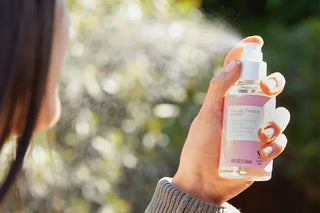Very simply put, a toner is a liquid that’s meant to be applied on the face right after you cleanse. That’s it. There are sundry definitions available of the word online, but it’s impossible to make any generalisations beyond this given the sheer variety of formulas, with various different ingredients, available online. What a toner will actually do for your skin depends entirely on what it contains and how it’s packaged.

Definitions of toners obtained from various online sources.
A brief history
In the 1900s, beauty culturists advocated for the use on skin ‘tonics’, ‘fresheners’ or ‘astringents’ to ‘tone’ (all of which I’m going to lump into the toner category for convenience, even though the word toner came into use after the Second World War, when astringents came to be seen as something harsh, and were therefore, rebranded as toners), ‘stimulate’, or ‘freshen’ the skin after cleansing. These products remained popular throughout the twentieth century.
Even during the 20th century, these products varied in composition and tended to make several medicinal claims. Common ingredients they used will make any modern, educated aestheticians skin crawl: alcohol, witch hazel extract, tincture of benzoin, camphor and borax, while pink appears to have been the colour of choice. All of these ingredients sensitise the skin and don’t impart any benefit to it.
In the 1940s the FDA disallowed many of the false claims that toners made in the US, including claims that they could improve skin elasticity or tighten the pores. Outside the US however, in countries with subpar consumer safeguards, these claims persisted and in a lot of cases, endure to this very day, given the profitability associated with such products. By the 1960s, most cosmetic companies had settled on some form of a ‘cleanse, tone and moisturise’ skincare routine. Toners then were said to ‘clarify’ and ‘refine’ the skin – terms that were vague enough to avoid trouble with regulators.

So should you use toners?
Well that depends. If you’re on a budget, and buy only a limited number of things, then no. In that case, stick with the essentials: cleanser, moisturiser and SPF. Keep in mind that everything a toner can do, something else can do as well. The performance of any skincare product depends entirely on the ingredients that it contains and skincare should always be selected based on your skin concerns, if you don’t want to end up squandering money. Given this, if you’re not on a budget, toners can be completely fine if they contain the right ingredients, and are packaged to block out air and light if they contain unstable ingredients like ascorbic acid.
However, caveat emptor, for contrary to what’s popularly being publicised nowadays on the supposed benefits and ‘gentleness’ of modern toners, the reality for a large number of them is no different from what it was a hundred years ago. A vast majority of toners are still chock full of irritants like denatured alcohol and fragrance, a rather elusive word, for it can appear on an ingredients list in several distinct configurations, which can make it a difficult ingredient to spot. If you still do decide to buy a toner, look for one that contains moisturising, hydrating and skin replenishing ingredients. However, if you spot alcohol, menthol, witch hazel, or fragrance (in any one of its myriad forms), on an ingredients list, run - as fast and as far as your legs can carry you.

